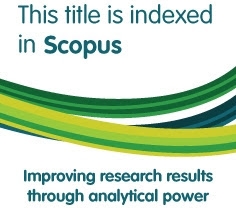Kiai dan Blater: Antara Kesalehan dan Kekerasan dalam Dinamika Politik Lokal di Madura
Abstract
Yanwar Pribadi. 2018. Islam, State and Society: Local Politics in Madura. New York: Routledge
This book talks about the relationship between Islam, state and society in Indonesia with a focal point on local politics in Madura. Specifically, this book tries to explain factors that have shaped the development of contemporary Islam and politics in Madura. One of the main arguments of this book is that local elite figures play greater roles than formal leaders such as village heads or regents in mobilizing communities in Madura. By focusing on both kiai and blater, this book examines the forms of the relationship between Islam and politics on one hand, and between piety and violence on the other. Anthropologically speaking, in order to produce a richer discussion, kiai and blater must be seen as social actors and not as a mere structure in their role of the construction of Islam and political formation in contemporary Indonesia.
Keywords
Full Text:
PDFReferences
Asad, Talal. 1986. The Idea of an Anthropology of Islam. Washington DC: Center for Contemporary Arab Studies, Georgetown University.
Beatty, Andrew. 2004. Varieties of Javanese Religion: An Anthropological Account. Cambridge University Press.
Daniels, Timothy P. 2009. Islamic Spectrum in Java. Asghate eBook.
Geertz, Clifford. 1960. The Religion of Java. Chicago: University of Chicago Press.
Jonge, Huub de. 1989. Madura dalam Empat Zaman: Pedagang, Perkembangan Ekonomi, dan Islam: Suatu Studi Antropologi Ekonomi. Jakarta: Gramedia.
———. 1995. “Stereotypes of the Madurese.” In Across Madura Strait: The Dynamics of an Insular Society, eds. Kees Van Dijk, Huub de Jonge, and Elly Touwen-Bouwsma. Leiden: KITLV Press.
———. 2002. “Rather White Bones than White Eyes: Violent Self-Help among the Madurese.” In Violence and Vengeance: Discontent and Conflict in New Order Indonesia, eds. Frans Hüsken and Huub de Jonge. Saarbrücken: Verlag für Entwicklungspolitik Saarbrücken.
Koentjaraningrat. 1972. “Madurese.” In Ethnic Groups of Insular Southeast Asia Vol. 1: Indonesia, Andaman Islands and Madagascar, ed. Frank M. LeBar. New Haven CT: Human Relations Area Files Press.
Mansurnoor, Iik. 1990. Islam in an Indonesian World: Ulama of Madura. Yogyakarta: Gadjah Mada University Press.
Muhaimin, Abdul Ghoffur. 2006. The Islamic Traditions of Cirebon: Ibadat and Adat Among Javanese Muslims. Canberra, A.C.T.: ANU E Press.
Mulder, Niels. 1998. Mysticism in Java: Ideology in Indonesia. Amsterdam: The Pepin Press.
Muthmainnah, Iik. 1998. Jembatan Suramadu: Respon Ulama terhadap Industrialisasi. Yogyakarta: Lajnah Kajian dan Pengembangan Sumber Daya Manusia (LKPSM).
Pranowo, M. Bambang. 1991. “Creating Islamic Tradition in Rural Java.” Ph.D. Thesis. Monash University.
Pribadi, Yanwar. 2018. Islam, State and Society: Local Politics in Madura. New York: Routledge.
Sila, Muhammad Adlin. 2011. “Memahami Spektrum Islam di Jawa.” Studia Islamika 18(3). DOI: 10.15408/sdi.v18i3.430.
Woodward, Mark R. 1989. Islam in Java: Normative Piety and Mysticism in the Sultanate of Yogyakarta. Tucson: University of Arizona Press.
DOI: https://doi.org/10.15408/sdi.v26i1.11121
Refbacks
- There are currently no refbacks.

All publication by Studia Islamika are licensed under a Creative Commons Attribution-NonCommercial 4.0 International License.
Studia Islamika, ISSN: 0215-0492, e-ISSN: 2355-6145
View My Stats
